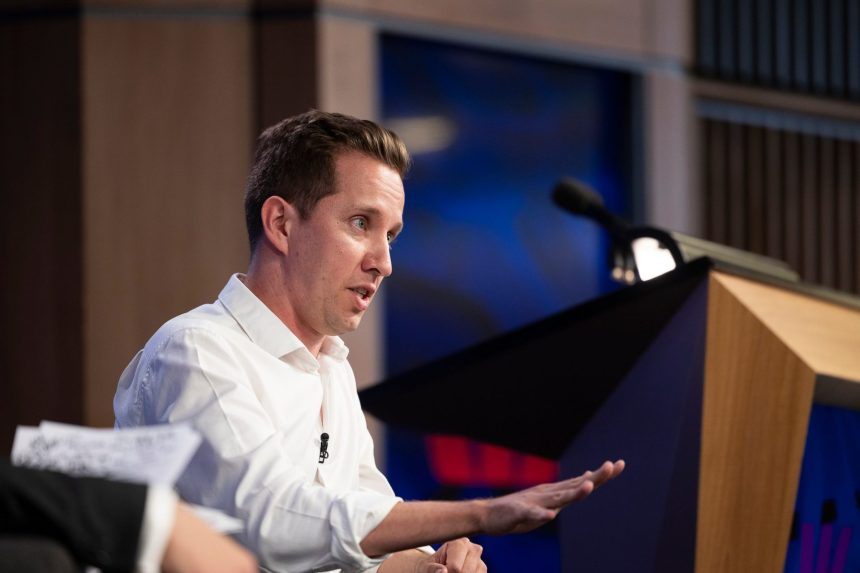The Greens say their plan to build, sell and rent houses through a public developer will be “crucial” to solving the nation’s housing crisis.
Greens housing spokesman Max Chandler-Mather presented the party’s so-called solution to the country’s worsening housing crisis last week, taking the stage at the National Press Club alongside Property Council of Australia chief executive Mike Zorbas.
Under a proposed 27.9 billion dollar federal election policy, the party called for the creation of a government-backed public developer to build 610,000 houses over the next decade in a bid to compete with the private developers Mr Chandler-Mather blamed for rising property prices.
According to the Greens, 427,000 of these homes would be earmarked for the rental market, with the rest being sold on to first-home buyers for just more than cost.
Unlike traditional public housing, the homes would be available to any renter or first-home buyer, with 20 per cent of the rentals allocated towards the bottom 20 per cent of earners.
While this might sound like a righting of the ship for lower-income Australians caught in the grips of the housing crisis, Mr Zorbas was quick to call out the proposal as a thinly veiled “financially illiterate” political stunt.
“I don’t think anyone has ever solved the housing crisis by adding another government agency,” he said.
“I can’t see the dystopia that Max is putting here in relation to those state governments, what I can see is incompetence over time.
“Grandstanding, gridlock and policy grenades are not going to house anyone.”
A political pipedream
During his speech, Mr Chandler-Mather claimed the public developer would save the average renter $5200 a year and the average first-time buyer $260,000 on the price of a home by cutting out the profit margin and building good-quality homes for people “the way governments used to”.
But an analysis by the Parliamentary Budget Office (PBO) themselves warned that the impact of the proposal on the property markets was “highly uncertain” and that the costing for the project had not made any assessment of flow-on impacts on property prices, rents or supply and demand of residential properties.
According to PBO, the proposal was “very sensitive” to factors like negotiations with state governments, capacity within the construction industry, land cost, and the speed of approvals (which have continuously fallen month-on-month over the last year).
The Greens have also offered two conflicting statements as to how exactly the rental policy would work. In the version the party submitted to the PBO, the cap was a single, nationwide cap based on average household income, which informed the $5200 savings figure.
But in an interview with ABC last week, Mr Chandler-Mather instead said that each household would have its own cap based on its own income, giving each household a different number and forcing higher-earning Australians into more expensive rental properties.
Even if the party were to lock down a rental policy, the Greens’ proposal to reserve 20 per cent of the supply for anyone in the lowest income bracket would sideline the 200,000 people stuck on the waiting list for social housing.
With no added mention of how a public developer would impact state planning or the resale price of the bought homes, it’s clear that the proposal was more of an idea designed to pressure the Labor government as they campaign for their Help-to-Buy equity scheme than a solution to the nations housing woes.
Treasurer Jim Chalmers has already slammed the Greens from Parliament House, calling out their scheme for being divorced from reality.
“I obviously haven’t gone through it in any detail, and it sounds like neither have the greens,” he told reporters.
“It’s easy enough for them to write press releases with big numbers attached to it. They never have to implement anything, and they never have to make anything add up.
“They quite frequently promise tens of billions of dollars for all kinds of causes because they know they don’t have to make it add up at the end of the day.
“If the Greens really cared about housing affordability, they’d stop running interference in the senate on our housing policies.”






